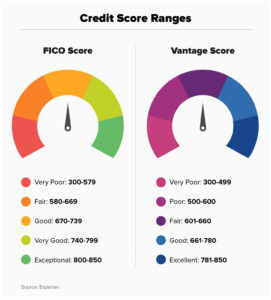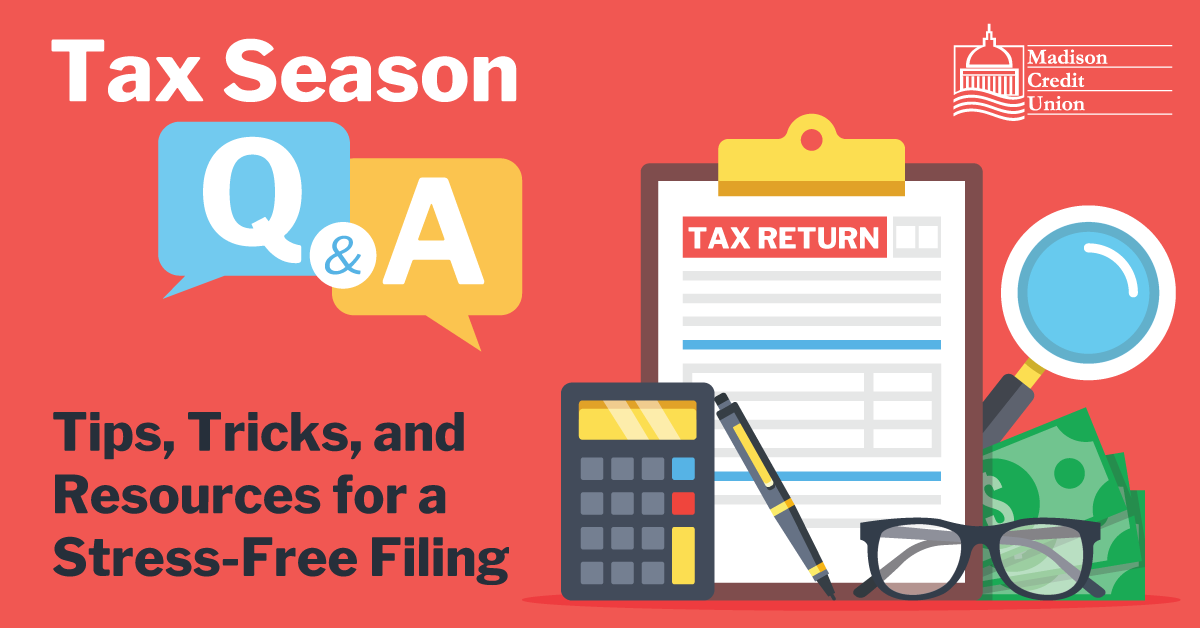Tax season can be overwhelming, but with the right information and preparation, it doesn’t have…
Credit Score 101 : 7 Tips for a Healthy Credit Score
Know the Ins and Outs of your Credit Score Plus 7 Tips for a Healthy Credit Score
Today’s economy is not a cash economy, most things are paid on credit, cars, homes and most purchases from groceries to furniture. Understanding your credit score is a great way to save money and start securing your financial future.
First let’s begin by understanding what a credit score is. A credit score tells lenders your likelihood of paying back a loan on time. It is calculated by companies using a mathematical formula – a scoring model, with information from your credit report.
Some factors used to calculate a credit score are:
- Current unpaid debts
- Bill-pay history
- Your available credit limit
- Any new applications of credit
- Type and number of any current loans
- Length of time you have had your loans
- Any past debt issues and how long ago – foreclosures, collections, bankruptcy

Your score can differ slightly based on that company’s unique scoring model formula. It could also change based on the day of the month. For example, it can change (go up) after you pay your credit card bill. It won’t go up a huge amount but it can make a difference.
Since your credit report is used to calculate your credit score and your credit score is used to get a loan and lower interest on said loan, it’s important to maintain a healthy credit report.
To maintain a healthy credit report you must look at your credit report. Federal law allows you to get a free copy of your credit report every 12 months from each credit reporting company. The main companies are Experian, TransUnion and Equifax. Reviewing your credit report at least a few times a year shows you what companies see about your financial history. It also helps you monitor identity theft and any errors. You can refute something on your credit report by contacting either of the three companies listed.
Once you are satisfied that your credit report is true and in order, here are 7 tips to keep your credit score in the green zone.
- Pay back your debts on time. How you’ve repaid past debt is the most important factor (35%) in calculating your credit score.
- Apply for a new credit only when you need it. Ten percent of your credit score is determined by how many new credit accounts you’ve opened and the number of times lenders have checked your credit. Another 15% of your score is determined by the length of your credit history. When you add a new account into the mix, the average age of your credit accounts drops.
- Don’t co-sign. Be cautious about co-signing a loan, even for family members, unless you are willing and able to take on the payments later, if necessary. If a payment is missed and you don’t pay it, it can negatively affect your credit score.
- Consider keeping starter cards open. Cards designed for people without a credit history, called starter cards, usually have high interest rates and fees, low limits and few rewards. Even though you’ve stopped using them, it’s a good idea to keep them open. This will help the 15% of your score that comes from the length of your credit history. It also will help the even bigger part (30%) of your score that’s based on your utilization ratio: your credit card debt relative to your total available credit.
- Guard your personal information. Be very careful when giving out your Social Security number, birth date, credit card numbers, and other personal information. Use secure websites and be cautious on phone calls. Don’t leave paperwork with this information on it lying around—shred it. Identity theft is a very real danger and a costly one, in both time and money.
- Regularly monitor all your accounts. Even if you don’t use them, check each account to make sure there aren’t any charges, such as annual fees, and that no one is fraudulently using your card. Order a free credit report from the specific sites listed above or here at annualcreditreport.com, the only site sanctioned by the Federal Trade Commission. Stagger your reports from the three reporting agencies so that you get one report every four months.
- Stay diligent. Make sure that the good credit score you’ve worked so hard to build stays that way.
And remember, at Madison Credit Union we are always here for you. If you have any questions or want to sit down with one of our loan officers to discuss a plan to improve your credit, call us at (608) 266-4750 or email lending@madisoncu.com.




